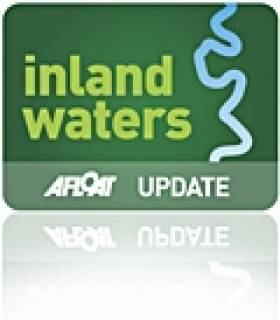Displaying items by tag: Ballyline River
Accidental Pollution Leads To Fish Kill In Co Kerry
#FishKill - Accidental pollution from a farm in Co Kerry has resulted in a fish kill on a tributary of the Ballyline River.
Inland Fisheries Ireland were contacted by Kerry County Council on Saturday 16 March after being altered by a farmer to a slurry spill on his property in the Kilgarvan area of Ballylongford.
Upon arriving at the farm, IFI officers found one side of the slurry pit wall had collapsed, resulting in a large slurry spill. Two cattle were also injured in the incident and had to be put down.
The slurry went into a watercourse that eventually flows into the Shannon Estuary at Ballylongford Bay.
The farmer had carried out emergency measures on site attempting to contain the slurry and also trying to minimise the impact to fish and wildlife downstream.
Fisheries officers carried out a visual inspection downstream but as the slurry was still passing there was strong discolouration and so it was impossible to see any dead fish. Samples were taken and sent for analysis immediately.
The situation was monitored over the weekend, and a full walkover of the stream was carried out as the water cleared on Tuesday 19 March.
IFI can confirm that a fish kill took place as a result of the pollution incident, and that 150 brown trout, hundreds of stickleback, one eel and one flounder were recovered. The section of river downstream from the farm to Gortanacooka Bridge was the most heavily impacted.
Currently there is a buildup of organic sediment in the river from the farm to the first bridge in Graffa Bog, which IFI says will not disperse until there is a flood in the river.
The farm was also inspected on the evening of 19 March and the water within the watercourse was clear. The investigation continues.






























































